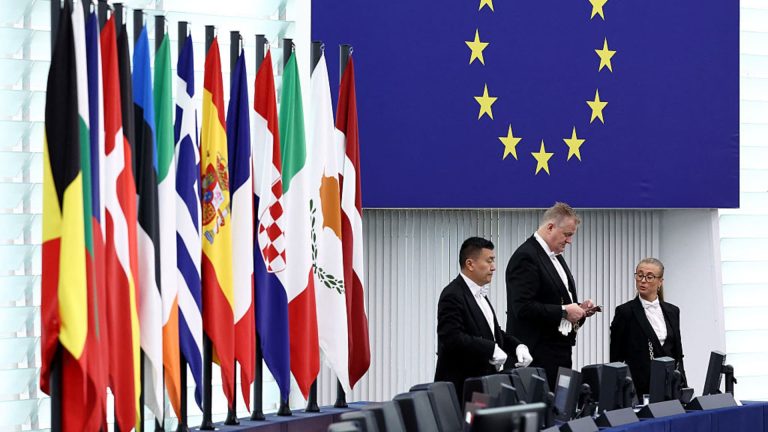After a week of global market jitters, the reaction to U.S. strikes on Iranian nuclear facilities will be front and center over the coming days. Meanwhile, a trio of heavyweight events could also shape the economic and geopolitical mood. From NATO tensions in The Hague to trade talks in Tianjin and industrial optimism in Berlin — investors will be watching closely.
The stage is set for tense talks at the NATO Summit in The Hague on Wednesday where U.S. President Donald Trump is expected to exert further pressure on Europe to boost defense spendingSummer Davos takes place in Tianjin, China from Tuesday to Thursday with China trade talks underwayDay of Industry in Germany on Monday and Tuesday as engine of growth restarts
U.S.-Iran-Israel
Addressing the nation on Saturday evening, U.S. President Donald Trump said strikes on three of Iran’s nuclear sites were a “spectacular military success” that “completely obliterated” the country’s major enrichment facilities.
The strikes, which mark the first time the U.S. has conducted a direct military attack on Iran, mark a dramatic escalation in geopolitical tensions. Trump’s claim about the result of the operation could not be independently confirmed.
Iran Foreign Minister Abbas Araghchi slammed the U.S. strikes, describing them as “outrageous” and saying the country “reserves all options to defend its sovereignty, interest, and people.” Global investors will be scrambling to assess the fallout.
On the Defensive
NATO meetings with Trump in attendance have a history of being dramatic. Back in 2017, the White House leader consistently questioned America’s commitment to the alliance, and accused other members of owing “massive amounts of money” to the overall share of defense spending.
Fast forward to 2025 and the next NATO Leaders Summit with Trump is set to take place in The Hague in the Netherlands on Wednesday. Some problems are familiar – while defense spending has increased dramatically across Europe, countries like Spain risk derailing talks by calling the 5% of GDP target “unreasonable.” In addition, the war in Ukraine rages on. Meanwhile, other problems are new – hostilities are rising between Israel and Iran, alongside other neighbors in the Middle East, are testing international relations to the limit.
U.S. Ambassador to NATO Matthew Whittaker told CNBC’s “Squawk Box Europe” that the region should not expect a free ride from the U.S. on defense spending, as “the 5% target is not a negotiating tactic.”

Summer Davos
On the other side of the world, the Chinese city of Tianjin hosts the World Economic Forum’s Meeting of New Champions, running from Tuesday to Thursday — also known as the Summer Davos. Technology dominates the agenda at a tricky time for relations between China and the West, as trade negotiations with the U.S. are still ongoing.
Trump may have bought more time for TikTok, extending the deadline for China’s ByteDance to divest the social media platform’s U.S. business to September. Still, the latest round of trade talks in London led to a vague stand-off between the two superpowers, with no official readout. Speaking to CNBC right after those negotiations, U.S Commerce Secretary Howard Lutnick was asked if current tariffs on China would not shift again, to which he replied, “You can definitely say that.”

This may do little to ease the conversations between Chinese officials and corporate leaders in Tianjin and the international delegates in attendance, who will be looking for more certainty from both the White House and Beijing.
Engine of Growth
Closer to home, it’s the Day of Industry conference in Germany on Monday and Tuesday. This annual meeting in Berlin highlights German economic policy and global trade strategies. It could be a good time for the new government to be touting Europe’s so-called Engine of Growth, with four economic institutes raising their 2025 and 2026 GDP growth forecasts for Europe’s largest economy.
During a recent trip to Washington, D.C., German Chancellor Friedrich Merz dodged the ire that other world leaders have faced in the Oval Office, with Trump’s focus mostly dominated by his public spat with Elon Musk. But it’s not all clear roads ahead for Germany, as the country’s auto industry body reports that domestic auto-makers have shouldered around 500 million euros ($576.1 million) in costs associated with Trump’s import tariffs.

